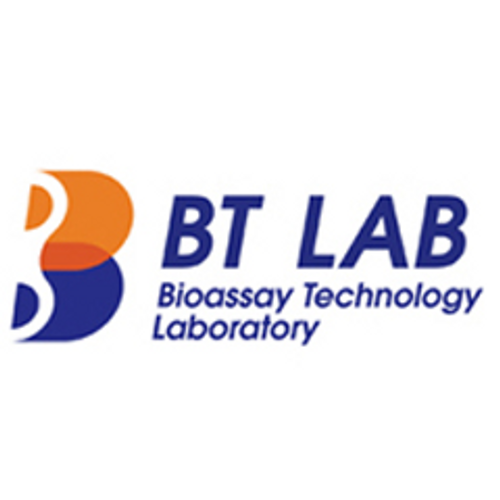Product Description
Bovine Major prion protein (PRNP) ELISA Kit | AE25844BO | Abebio
Species Reactivity: Bovine (Bos taurus; Cattle)
Abbreviation: PRNP
Alternative Name: ASCR; CD230; CJD; GSS; MGC26679; PRIP; PrP; PrP27-30; PrP33-35C; PrPc; prion; CD230 antigen|major prion protein|p27-30|prion protein PrP|prion-related protein
Application: ELISA
Range: 0.156-10 ng/mL
Sensitivity: 0.039 ng/mL
Intra-Assay: ≤5.4%
Inter-Assay: ≤9.9%
Recovery: 0, 94
Sample Type: Serum, Plasma, Other biological fluids
Detection Method: Sandwich
Analysis Method : Quantitive
Test Principale: This assay employs a two-site sandwich ELISA to quantitate PRNP in samples. An antibody specific for PRNP has been pre-coated onto a microplate. Standards and samples are pipetted into the wells and anyPRNP present is bound by the immobilized antibody. After removing any unbound substances, a biotin-conjugated antibody specific for PRNP is added to the wells. After washing, Streptavidin conjugated Horseradish Peroxidase (HRP) is added to the wells. Following a wash to remove any unbound avidin-enzyme reagent, a substrate solution is added to the wells and color develops in proportion to the amount of PRNP bound in the initial step. The color development is stopped and the intensity of the color is measured.
Product Overview: PRNP is a gene that codes for a protein called the prion protein (PrP), which is expressed in the brain and several other tissues.The human PRNP gene is located on the short (p) arm of chromosome 20 between the end (terminus) of the arm and position 12, from base pair 4, 615, 068 to base pair 4, 630, 233. PRNP has also recently been designated CD230 (cluster of differentiation 230) . Although the precise function of PrP is not yet known, it is possibly involved in the transport of ionic copper to cells from the surrounding environment. Researchers have also proposed roles for PrP in cell signaling or in the formation of gaps between nerve cells (synapses) where cell-to-cell communication occurs.
Stability: The stability of ELISA kit is determined by the loss rate of activity. The loss rate of this kit is less than 5% within the expiration date under appropriate storage condition. The loss rate was determined by accelerated thermal degradation test. Keep the kit at 37°C for 4 and 7 days, and compare O.D.values of the kit kept at 37°C with that of at recommended temperature. (referring from China Biological Products Standard, which was calculated by the Arrhenius equation. For ELISA kit, 4 days storage at 37°C can be considered as 6 months at 2 - 8°C, which means 7 days at 37°C equaling 12 months at 2 - 8°C) .
 Euro
Euro
 USD
USD
 British Pound
British Pound
 NULL
NULL








